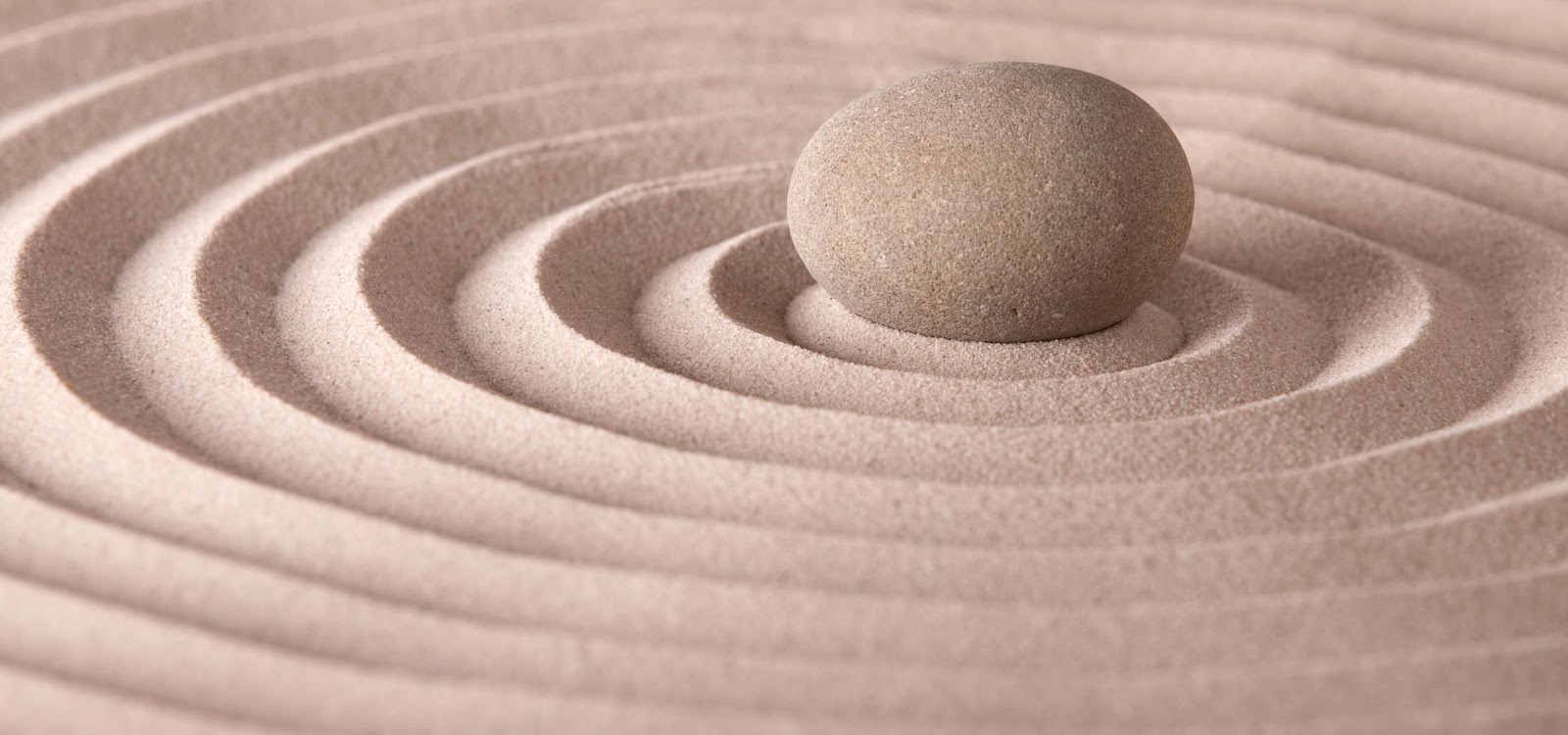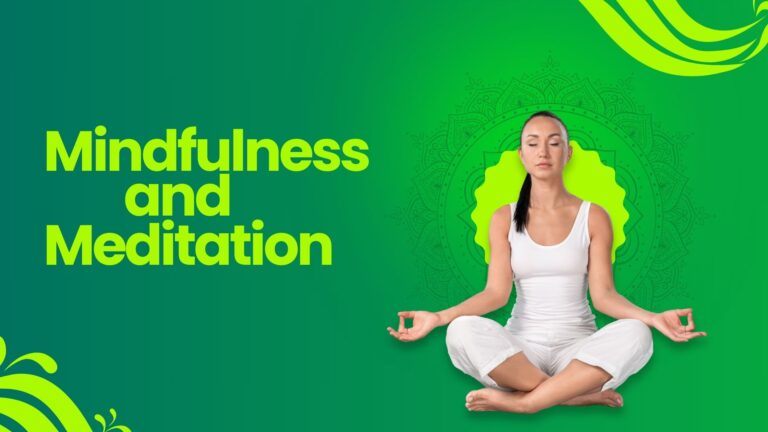In today’s fast-paced world, terms like “mindfulness” and “meditation” are often tossed around as essential practices for well-being. Many people use them interchangeably, but while they share similarities, mindfulness and meditation are distinct in their techniques and purposes. Understanding the difference between the two can help you make informed choices to boost your mental clarity, emotional health, and overall quality of life.

What Is Mindfulness?
At its core, mindfulness is about being fully present in the moment, aware of where you are and what you’re doing, without judgment. This practice can be incorporated into everyday activities, such as eating, walking, or even working. The key is to focus your attention on the present and accept your thoughts and feelings as they arise, without reacting to them.
Origins of Mindfulness
Mindfulness has its roots in Buddhist philosophy but has become popular in Western culture, especially in the fields of psychology and self-care. It has evolved into a secular practice that is widely used to reduce stress, improve focus, and enhance emotional resilience.
How to Practice Mindfulness
Mindfulness can be practiced in many ways:
- Mindful Breathing: Focus on your breath, noticing the inhale and exhale without trying to control it.
- Mindful Eating: Savor each bite, noticing the textures, flavors, and smells of your food.
- Mindful Walking: Pay attention to the sensations of your feet touching the ground and the movement of your body as you walk.
Because mindfulness is about awareness, you can engage in it throughout the day without setting aside dedicated time.

What Is Meditation?
Meditation is a formal practice that involves setting aside time to focus inward. It typically requires sitting in a quiet space and concentrating on a specific object of attention—whether it’s your breath, a mantra, or a visualization. The goal of meditation is often to cultivate a state of relaxation, mental clarity, and emotional balance.
Origins of Meditation
Meditation has been practiced for thousands of years in various spiritual traditions, including Hinduism, Buddhism, and Taoism. Today, it’s widely adopted in secular contexts, with scientific research supporting its many mental and physical health benefits.
Types of Meditation
There are several forms of meditation, including:
- Mindfulness Meditation: This involves focusing on the present moment without judgment, making it closely related to mindfulness practices.
- Transcendental Meditation: Practitioners silently repeat a mantra to focus their minds.
- Loving-Kindness Meditation: This form focuses on developing feelings of compassion and kindness toward oneself and others.
Meditation usually requires more structure and dedicated time than mindfulness.
Key Differences Between Mindfulness and Meditation
Focus and Intention
The focus of mindfulness is on moment-to-moment awareness during any activity, while meditation often involves sitting quietly and directing attention inward for a specific purpose, such as relaxation or mental clarity.
Formal vs. Informal Practice
Mindfulness can be practiced informally throughout the day. Meditation, on the other hand, is more structured, requiring a set time and place for practice.
Goal-Oriented vs. Non-Goal-Oriented
While meditation is often goal-oriented—whether to calm the mind or increase focus—mindfulness emphasizes simply observing the present moment without trying to change or control anything.
How Mindfulness and Meditation Work Together
Mindfulness can be considered a form of meditation, often referred to as “mindfulness meditation.” In this practice, you focus on the present moment while meditating, observing your thoughts and feelings without judgment. However, you can also practice mindfulness outside of meditation by staying present and aware during daily activities.
Conversely, meditation can help deepen your mindfulness practice by training your mind to focus, relax, and become more attuned to the present moment.
Benefits of Mindfulness
Mindfulness offers a range of benefits, including:
- Reducing Stress: Mindfulness helps you stay grounded in the present, preventing overthinking or worrying about the future.
- Improving Focus: By training your brain to focus on the present, mindfulness increases attention and concentration.
- Enhancing Emotional Regulation: Mindfulness allows you to observe your emotions without reacting impulsively, improving emotional stability.
Benefits of Meditation
Meditation offers similar benefits, but often at a deeper level due to its more structured practice:
- Mental Clarity: Regular meditation clears mental clutter, helping you think more clearly and make better decisions.
- Emotional Balance: Meditation promotes a sense of inner calm and emotional equilibrium, reducing anxiety and depression over time.
- Physical Health: Studies show that meditation can lower blood pressure, improve heart health, and boost the immune system.

Mindfulness and Meditation for Stress Management
Both mindfulness and meditation have been shown to reduce stress significantly. By helping you stay grounded in the present and offering tools to manage overwhelming thoughts, these practices allow you to navigate stressful situations with greater ease.
- Mindfulness helps manage stress in real-time by encouraging you to focus on the present and observe your stress response without judgment.
- Meditation provides a more profound stress-relief mechanism by calming the mind and reducing the overall stress load over time.
Starting Your Mindfulness or Meditation Practice
Whether you want to integrate mindfulness into your daily activities or dedicate time to meditation, getting started is easier than you might think.
Simple Mindfulness Techniques
- Practice mindful breathing for a few minutes each day, focusing solely on your breath.
- Incorporate mindfulness into daily tasks, like brushing your teeth or drinking coffee, by paying close attention to the sensory experience.
Easy Meditation Practices
- Start with short meditation sessions of 5-10 minutes. Focus on your breath or repeat a simple mantra.
- Gradually increase the duration as you become more comfortable with sitting quietly and focusing your attention.
Conclusion
While mindfulness and meditation are often confused, they are distinct practices that serve different purposes. Mindfulness allows you to bring awareness and presence to everyday life, while meditation provides a structured approach to cultivate deep relaxation and focus. Both practices are highly beneficial and can be used in tandem to enhance your mental and emotional well-being.
By understanding the differences and benefits of both, you can create a balanced routine that supports your journey to a calmer, more mindful, and mentally clear life.
FAQs
Can I practice mindfulness without meditating?
Yes, mindfulness can be integrated into any part of your day, even during routine activities like walking or eating.
How long should I meditate each day?
Beginners can start with just 5-10 minutes a day, gradually increasing the time as they become more comfortable with the practice.
Which practice is better for managing stress?
Both are excellent for stress management. Mindfulness helps in real-time, while meditation provides long-term stress relief by calming the mind.
Can mindfulness and meditation improve mental health?
Absolutely. Both practices have been shown to reduce anxiety, depression, and emotional reactivity, leading to better overall mental health.


